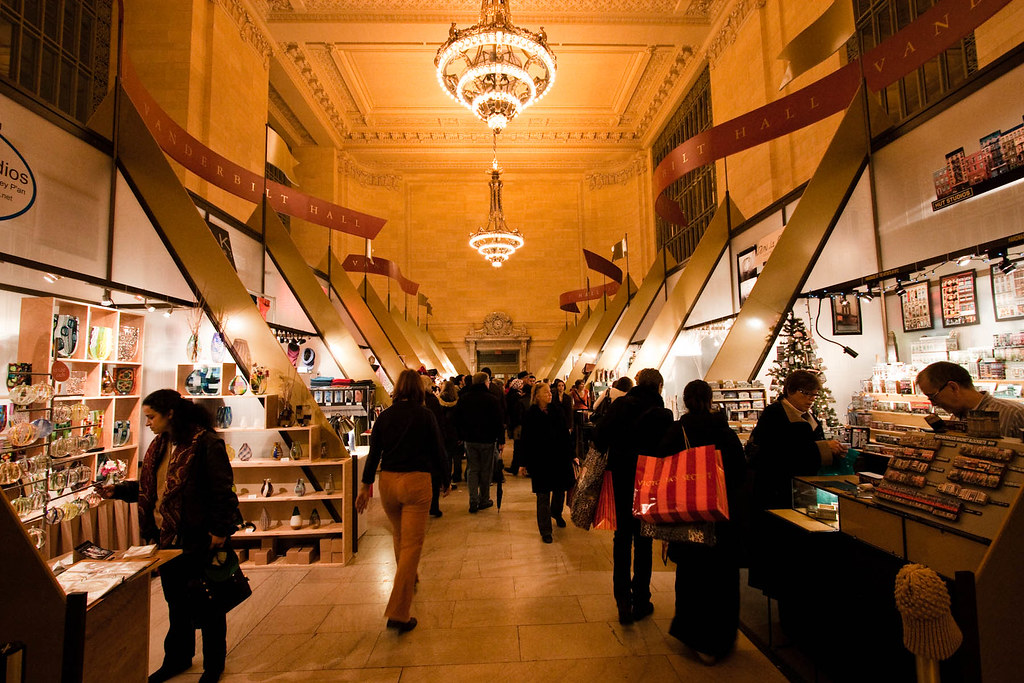Holiday shopping can be a daunting activity and people react differently to the process of shopping. Here are some tips on how to leverage your shopping personality and become the best holiday shopper despite rising prices and interest rates.
The holiday season is already stressful enough without having to deal with the year’s busiest shopping season as excessive prices put a strain on our wallets.
The guidelines for holiday purchasing have changed a bit from previous seasons. Long delivery windows and poor discounts were the results of retailers’ struggles to keep products on the shelves in 2021 due to shipment holdups and supply chain bottlenecks.
The polar opposite is taking place this year. Retailers placed their holiday orders early and in bulk to prevent a recurrence of supply problems from the previous year. But that attempt was thwarted by historically high inflation, which drove up the cost of food, gas, and other household necessities while pressuring consumers to cut back on discretionary purchases like gadgets, clothing, home goods, and furniture. Many of the biggest retailers in the country are currently under increased pressure to clear shelves because of their excess inventory.
That said, even though experts are saying that global inflation may have peaked, captains of industry such as Jeff Bezos have advised consumers to put a pause on large purchases this holiday; this coming on the back of Amazon planning to lay off about 10,000 staff members.
At this juncture is where you come in, my dear consumer. You gain from these challenges. This year’s sales have begun earlier, and retailers are offering discounts on a greater selection of goods. Be advised, nevertheless, that there can be some unanticipated ground to cover, such as return fees and expensive freight.
However, you can be confident that we’re here to assist you in locating the finest offers, selecting environmentally friendly options, and managing your stress when shopping on Bolingo.com. Here is how to think about your shopping personality this holiday:
The Sherlock Holmes
This is the strategic shopper who thinks of holiday shopping as a chess match. Despite the fact that economic uncertainty might be depressing, many shoppers see giving gifts as a necessity. It is possible to make it work and shop wisely.
- Set a spending limit and decide what and where you want to buy. You can avoid impulse purchases by doing this.
- Keep an eye on costs so you can recognise a good deal when you see one. Watch out for the larger retailers: This year, Gap, Target, Walmart, Amazon, and Kohl’s all issued warnings about their surplus inventory and aggressive markdowns to get rid of it. Bolingo.com has enough inventory for you to surprise your loved ones this holiday.
- Use online resources. Google is here to help you. When you search for a certain product, a feature that displays the item’s price across several stores ought to appear on the right. When tracking Amazon prices, websites like CamelCamelCamel and Keepa are beneficial because they provide information on a product’s historical price. Additionally, it’s simpler to compare prices and use browser extensions for coupons (more on this below), which populate promotional codes as you shop.
The Flash
Previously on….Efficiency and productivity are essential if you want to survive the holiday shopping season, between buying groceries, gifts, and seasonal decorations. Utilising “omnichannel” purchasing alternatives, such as curbside pickup and buying online and picking up in-store, will make getting this badge simple and ensure a smooth transaction regardless of where you make your purchase (in-store, by phone, app or desktop). By eliminating the need to get in and out of the car, browse the aisles, or make impulsive purchases, these save time and money.
In an effort to remain competitive, the majority of the country’s (U.S.) biggest merchants and numerous neighbourhood shops both provide these services. As long as clients reach an order minimum, usually, at least $30, most large shops don’t charge for curbside pickup.
The Cashback King, or Queen
If giving up some privacy is worth saving a few dollars on purchases and gaining access to exclusive deals, think about registering for a rewards or cash-back service. Companies like BeFrugal, Rakuten, Ibotta and CouponCabin keep track of your browsing and shopping patterns and give you back 1 to 10%, occasionally even more, of what you spend in return.
In order to save money when shopping in person, several businesses also let you connect your credit card. Every three months, Rakuten sends a single payment via PayPal or check. Some websites, such as Dropp and Swagbucks, can compensate you with gift cards or points. Websites like Bolingo, Honey and Coupon Cabin provide exclusive promo codes. The option to donate the money back to a charity is available in Fetch.
But exercise caution when using these browser add-ons. By offering you a sizable discount, they can convince you to spend more than you had planned.
The Postmates
There are only a limited number of options when it comes to mailing gifts, including the U.S. Postal Service, FedEx, and UPS. Seasonal fees and potential delivery delays accompany the holidays. So, for someone with this personality, preparedness is vital.
Always arrive early, especially when using the Postal Service, which is still the least expensive option available despite upping its prices every six months. This holiday season, mail delivery should take two to five days, however, you can pay more for a quicker option. The Postal Service’s regular offering, first-class package service, has rates starting at $4.80 that vary with the weight of the box. Consider using this service for tiny devices and articles of clothing as the maximum weight is 13 ounces. Priority mail is an option for larger packages (up to 70 pounds), with pricing starting at $9.90. If you bring your own box, you can save money.
FedEx and UPS are your best options if you don’t mind paying extra and are pressed for time. The cost of these services oscillates depending on the size of the box, the speed of delivery, and the distance of the shipment. FedEx charges $15.70 for a medium-size box, while UPS starts at $14.95 for a box large enough to hold a pair of shoes or some clothing. At UPS and FedEx, a large package that can hold a soccer ball or blender starts at $19.60 and $24.20, respectively.
The Returner
Change is currently underway when it comes to returning procedures. The gradual elimination of return labels with online orders has already been observed. Free returns are currently also going away. Retailers have been forced to implement a transformation that some industry academics and executives have been advocating for years: charging for a return label or adding a restocking fee. High gas prices, which rose above $5 a gallon over the summer, and rising labour costs have forced retailers to introduce these changes. Retailers have always had to pay for returns, particularly when selling clothing, according to experts.
Among the stores that charge restocking fees and/or return labels include Zara, H&M, Anthropologie, Abercrombie & Fitch, and J. Crew. Nevertheless, returning items to physical stores is still free.
Therefore, before making a purchase, be careful to review the retailer’s return policy. Furthermore, you should give it some thought before mailing a gift or doing an online buy. Make sure the business doesn’t have a two-week policy if you’re delivering the present three weeks before Christmas by paying attention to the return window at the store.
It pays to ask yourself some key questions, and these include, viz: Does the recipient live close to one of these stores, too? Do they possess a simple means of getting there? If not, and you’re worried that what you give them won’t suit them or might be the wrong size, think about giving them a gift card instead.
Ordering from a local company allows you to avoid having to bother about mail-back returns, which is another excellent choice.
The Green Arrow
Avoiding fast fashion businesses, whose clothing is frequently created using synthetic materials that are harmful to the environment, is a trait of this personality. These businesses also generate an enormous amount of waste. Think about investing in better-quality apparel, which lasts longer when maintained correctly. Moreover, think about browsing secondhand websites like Craigslist and Facebook Marketplace as well as thrift or consignment shops.
Online shopping has the potential to be more environmentally friendly than traditional retail shopping if you drive instead of using public transportation, walking, biking, or a bicycle. But experts agree it’s crucial to make some adjustments. Try bundling your orders first. The fewer times a delivery person visits your home, the better. Second, avoid expedited delivery. Earlier delivery dates frequently necessitate the use of planes and less effective distribution methods, such as using vehicles that are presumably not fully loaded.
The TLC Empath
Making time for yourself over the holidays is crucial. We all know that the holidays are about giving to others and spending time with loved ones. Fortunately for you, inventory shortages and changing consumer preferences have increased the selection of goods on sale this year. For instance, this year’s health and wellness items. Holiday sales are likely to include shampoo, vitamins, soap, cosmetics, and face masks among other products.
Undoubtedly, consumers should all benefit from feeling good about themselves, and then gift that to someone else as well.




